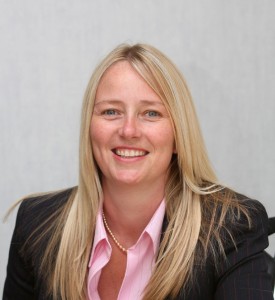 Small firms have a window of opportunity to minimise their tax bills, according to international accountancy firm Mazars.
Small firms have a window of opportunity to minimise their tax bills, according to international accountancy firm Mazars.
But Ann Bibby, a tax partner in the Birmingham office, is warning that they must act quickly ahead of new regulations and rates in April.
Highlighting a five point plan, she says the first issue to address is the imminent income tax cut from 50 per cent to 45 per cent for business owners who fall into the UK’s highest tax bracket.
Ms Bibby noted: “A dividend of £50,000 will cost £18,055 in tax if paid prior to April 6. If you delay until afterwards then you will save £2,780 by only paying £15,275 in tax. And this can be taken a step further by investing the dividend into an Enterprise Investment Scheme to gain a further 30 per cent income tax relief after three years, and a modest investment performance.
“Secondly, it is also still possible to receive up to 50 per cent tax relief on pension contributions made in the current tax year. This relief will be reduced to 45 per cent from April 6 onwards.
“Some people are able to ‘supercharge’ their pension contributions using the ‘carry forward’ rules. If you have contributed less than the annual pension allowance for tax relief (£50,000) within the past three years, you could contribute in excess of your allowance this time round and use up the spare tax relief carried forward since 2009/10 before it is lost.
“In addition, in April of 2014, the annual pension allowance for relief will be reduced to £40,000 so using the ‘carry forward’ rule on pension contributions before then could save you thousands.”
Ms Bibby’s third tip concerns tax relief on company pension contributions.
“By paying your pension contribution prior to your business’s financial year end, you can expect to receive the associated tax relief well within 12 months. Defer the contribution until after your year end, and you could wait an additional year until the relief arrives.”
Then there is Capital Gains Tax exemption.
Initially it was thought that this only applied for the 2012/13 tax year for investors who have made a gain which has been reinvested into Seed Enterprise Investment Scheme (SEIS) shares in that year.
Ms Bibby said: “Investors need to be aware that they can use the ‘carry back’ facility avoid paying CGT arising in 2012-13 on monies reinvested into SEIS companies before April 2014 – this is potentially 12 months longer.
“SEIS helps start-ups raise equity finance by providing tax relief to individual investors. There is also income tax relief available for investors who take this route. Using the SEIS for individuals with income tax and 2012/2013 CGT liabilities can sometimes achieve 100 per cent capital protection.”
Finally, from April onwards the Government will cap many forms of tax relief for higher earners. However, it has been confirmed that this will not apply to Business Premises Renovation Allowances (BPRA).
Ms Bibby added: “As the BPRA tax relief applies to unlimited earnings, it provides an attractive opportunity to invest, tax efficiently, in a specific commercial property. For higher rate tax-payers, the net cost of an investment of £100,000 could be as low as £1,000.”



















